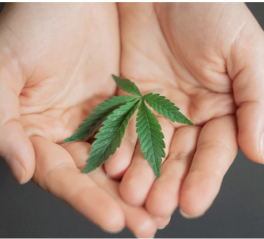01
Causes / Predispositions
The cause(s) of IBD are currently unknown. Patient risk factors include:
- Use of NSAIDS
- Poor Diet
- Cigarette Smoking
- Family History
02
Symptoms
Severity of symptoms can vary from patient to patient. Patients may experience constant symptoms while others may experience more sporadic symptoms.
Common symptoms include:
- Abdominal Pain/Cramping
- Bloody Stool
- Diarrhoea
- Fever
- Fatigue
- Loss of Appetite
- Weight Loss
03
Traditional Treatments
Lifestyle
- Limited Meal Portion Size
- Stress Management
- Appropriate Dietary Supplements.
- Avoidance of Dairy, Spicy Foods and/or Excess Fibre
Medications
- Antidiarrheal (Diphenoxylate, Atropine, Loperamide)
- Antispasmodics (Hyoscine, Mebeverine)
- Amino Salicylates (Sulphasalazine, Mesalazine)
- Analgesics (Opiates)
- Biologic/Biosimilar Agents
- Immunomodulators (Azathioprine).
- Steroids
Surgery
- In some cases, IBD patients may require colon surgery.
04
Treatment with Cannabis Medicine
Studies have shown that medicinal cannabis products high in CBD can be useful in the management of inflammatory bowel disease (IBD) symptoms such as loss of appetite and poor sleep quality, without significant side effects. Additional research is needed to fully understand the therapeutic potentials and possible side effects of cannabis as a treatment for IBD.
Recommended Intake Method(s)
- Edible Oils – Useful as a preventative treatment. Effectiveness limited by slow onset.
- Inhalation via Vaporizer – Useful in achieving immediate relief as needed due to fast onset.
Recommended Product Formulations
- Products containing only CBD.
- Products containing ratios of 1:2 or 1:1 THC to CBD.
Notable Terpenes
- Caryophyllene – Anti-inflammatory, Gastroprotective
- Pinene – Anti-Inflammatory, Antibiotic
- Myrcene – Analgesic, Sedating
- Linalool – Anti-anxiety, Analgesic
- Limonene – Anti-Depression, Anti-Anxiety, Antacid





